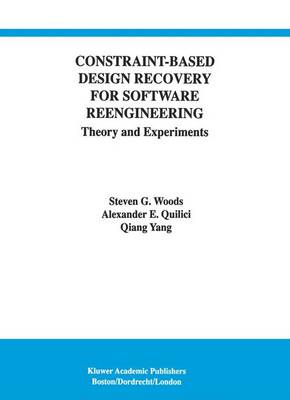The great challenge of reverse engineering is recovering design information from legacy code: the concept recovery problem. This monograph describes our research effort in attacking this problem. It discusses our theory of how a constraint-based approach to program plan recognition can efficiently extract design concepts from source code, and it details experiments in concept recovery that support our claims of scalability. Importantly, we present our models and experiments in sufficient detail so that they can be easily replicated. This book is intended for researchers or software developers concerned with reverse engineering or reengineering legacy systems. However, it may also interest those researchers who are interested using plan recognition techniques or constraint-based reasoning. We expect the reader to have a reasonable computer science background (i.e., familiarity with the basics of programming and algorithm analysis), but we do not require familiarity with the fields of reverse engineering or artificial intelligence (AI). To this end, we carefully explain all the AI techniques we use. This book is designed as a reference for advanced undergraduate or graduate seminar courses in software engineering, reverse engineering, or reengineering. It can also serve as a supplementary textbook for software engineering-related courses, such as those on program understanding or design recovery, for AI-related courses, such as those on plan recognition or constraint satisfaction, and for courses that cover both topics, such as those on AI applications to software engineering. ORGANIZATION The book comprises eight chapters.
- ISBN13 9780792380672
- Publish Date 30 November 1997
- Publish Status Active
- Publish Country NL
- Imprint Springer
- Edition 1998 ed.
- Format Hardcover
- Pages 189
- Language English
